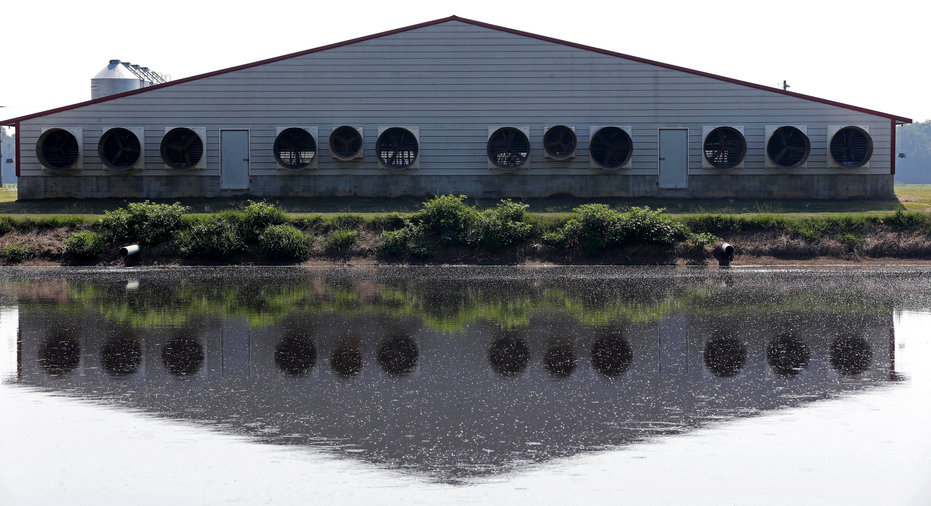Pork giant makes case that penned hogs are good neighbors

RALEIGH, N.C. – The world's largest pork producer put its best case before jurors Wednesday to debunk claims that its waste is responsible for stenches so foul and attracts so many flies that life for rural neighbors is miserable.
It's the second lawsuit to come to trial in a series of what could be dozens of similar nuisance complaints on behalf of more than 500 neighbors. As many as 10 lawsuits filed by the same attorneys could go to trials this year.
Smithfield Foods' lawyers picked the case, involving the two plaintiffs and the neighboring 4,700-hog operation, after plaintiffs' lawyers picked the first case and won a nearly $51 million jury verdict last month. That was cut to about $3 million because the country's No. 2 hog-growing state has a law that limits punitive damages punishing corporate misdeeds.
The verdict nonetheless rocked the industry in a place where local and state politicians have either supported pork producers or backed down in the face of their clout since the 1980s. If the lawsuits succeed, Smithfield Foods CEO Ken Sullivan told the Wall Street Journal in a story published Wednesday, "we will have to revisit whether we can continue doing business in North Carolina." Sullivan was not immediately available for an interview with The Associated Press, a company spokeswoman said.
Neighbors say that for decades they've tolerated clouds of flies drawn to open-air waste cesspools, smells so intense they cling to upholstered furniture and buzzards feasting on the flesh of dead hogs stacked near their homes. Livestock sewage sprayed over crops sometimes also drifts with the wind and coats neighboring homes and cars, their attorney told jurors.
"These neighbors live with the insult of having pig feces on the side of their home and in the air they breathe," said Michael Kaeske, a Dallas, Texas-based lawyer.
Smithfield has not changed the locally dominant method of hog waste disposal since intensive hog operations multiplied in North Carolina in the 1980s and '90s. State lawmakers froze that expansion in 1999 when a grower sought to build near the golf resort of Pinehurst, which was hosting the U.S. Open that year.
On the farms, thousands of hogs are housed together and their waste is flushed into holding pits, allowing bacteria to break down the material. The waste is then sprayed onto fields with agricultural spray guns.
Smithfield has refused to implement costlier technology that would sharply cut airborne odors, as it has done under a legal agreement in Missouri, because no one in North Carolina has forced it, Kaeske said. That helps Smithfield's Hong Kong-headquartered parent company produce pork at costs lower than in China, Kaeske said.
"Thirty percent of Smithfield's hogs are exported. The waste stays here," he said. "Our hope is that your decision will cause Smithfield to change."
Smithfield Foods lawyers say jurors should forget the corporation's size and focus on how the company's contract grower in this case treats Duplin County neighbors and plaintiffs Elvis and Vonnie Williams. Elvis Williams moved to their home in 1989 after the grower, Joey Carter, had established his hog operation but was only starting to expand it, Kaeske said.
Carter, a former police chief in the nearby town of Beulaville, is not being sued because Smithfield's hog-raising division uses strict contracts to dictate how farm operators raise livestock that Smithfield owns, Kaeske said.
Others living near Carter's operation "will tell you that for decades, there have been no problems where they are" until attorneys started portraying the prospect of big paydays by winning lawsuits, Smithfield attorney Mark Anderson said. "These folks were getting along in an incredible manner."
___
Follow Emery P. Dalesio on Twitter at http://twitter.com/emerydalesio. His work can be found at https://apnews.com/search/emery%20dalesio.



















